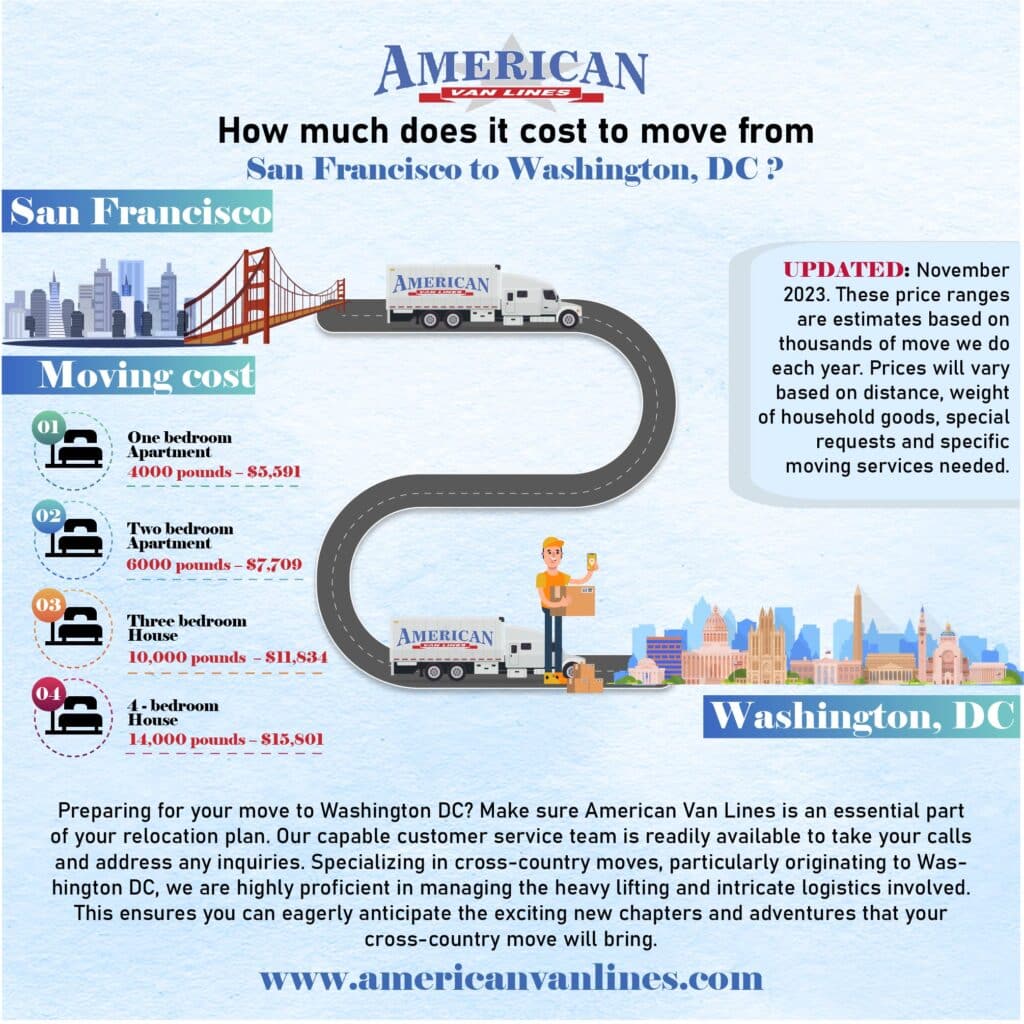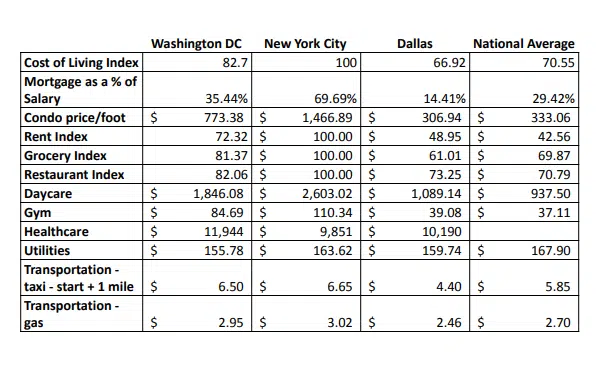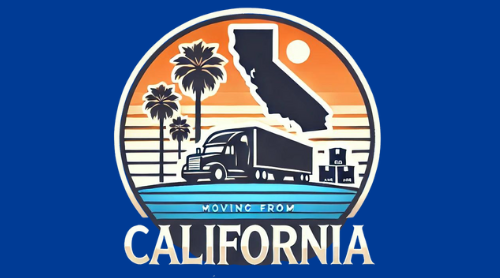Moving From San Francisco To Washington DC
Are you preparing to make the cross-country move from San Francisco to Washington D.C.? This significant relocation can be both exciting and intimidating, especially considering the vastly different lifestyles and cultures of these two iconic American cities. From the Golden Gate Bridge to the National Mall, the contrast between San Francisco's laid-back, tech-savvy vibe and D.C.'s fast-paced, politically charged atmosphere is striking. As you embark on this new adventure, it's essential to be aware of the various aspects that will impact your daily life, from housing and job markets to transportation and entertainment options.

- Preparing for a Cross-Country Move: San Francisco to Washington D.C.
- How much does it cost to move from SF to DC?
- Is it worth it to move to Washington, DC?
- Is it more expensive to live in DC or San Francisco?
- How much money do you need to move to Washington, DC?
- FAQ
- What are the main differences in cost of living between San Francisco and Washington D.C.?
- How does the job market in Washington D.C. compare to San Francisco?
- What are the best neighborhoods to live in Washington D.C. for someone moving from San Francisco?
- How do I navigate the transportation system in Washington D.C. compared to San Francisco?
Preparing for a Cross-Country Move: San Francisco to Washington D.C.
Moving from San Francisco to Washington D.C. can be a thrilling adventure, but it requires careful planning and preparation. Here are some essential tips to help you navigate the process:
Understanding the Distance and Time Zone Difference
One of the most significant factors to consider when moving from San Francisco to Washington D.C. is the distance and time zone difference. The approximate distance between the two cities is 2,796 miles, which can take around 40-50 hours of driving time, depending on the route and traffic conditions. Additionally, Washington D.C. is three hours ahead of San Francisco, which may affect your daily routine and sleep pattern.
Choosing the Right Moving Company
Selecting a reputable and reliable moving company is crucial for a successful cross-country move. Research and compare different moving companies, checking their licenses, insurance, and customer reviews. Make sure to get written estimates and ask about their experience with long-distance moves.
Packing and Labeling Your Belongings
Packing and labeling your belongings is a time-consuming but essential task. Start early, and consider using a color-coding system to categorize your boxes by room and priority. Use sturdy boxes, packing paper, and bubble wrap to protect your fragile items. Don't forget to label each box clearly, including its contents and the room it belongs to.
Changing Your Address and Notifying Important Parties
When moving to a new city, it's essential to update your address with the United States Postal Service (USPS), banks, credit cards, and other relevant parties. You should also notify your employer, school, or healthcare provider about your change of address. Don't forget to update your driver's license, vehicle registration, and voter registration.
Adjusting to the Climate and Culture Differences
Washington D.C. has a humid subtropical climate, which is significantly different from San Francisco's mild and cool climate. Be prepared for hot summers and cold winters, and pack accordingly. Additionally, Washington D.C. has a unique cultural and political atmosphere, which may take some time to adjust to. Research the local lifestyle, neighborhoods, and amenities to ensure a smooth transition.
| Moving Task | Estimated Time | Cost |
|---|---|---|
| Packing and labeling | 2-4 weeks | $100-$500 |
| Hiring a moving company | 1-2 weeks | $2,000-$5,000 |
| Updating address and notifying parties | 1-2 weeks | $0-$100 |
| Traveling to Washington D.C. | 2-5 days | $500-$1,500 |
| Settling into a new home | 2-4 weeks | $500-$2,000 |
How much does it cost to move from SF to DC?

The cost of moving from San Francisco (SF) to Washington D.C. (DC) can vary greatly depending on several factors such as the distance, weight, and type of items being moved, as well as the moving company or method chosen.
Moving Truck Rental
Renting a moving truck is a cost-effective option for those who are comfortable driving a large vehicle across the country. The cost of renting a moving truck from SF to DC can range from $2,000 to $5,000, depending on the size of the truck and the rental duration. Here is a breakdown of the estimated costs:
- Fuel costs: $1,000 to $2,000, depending on the size of the truck and the fuel efficiency.
- Rental fees: $1,000 to $2,000, depending on the size of the truck and the rental duration.
- Tolls and parking: $100 to $300, depending on the route taken and the parking fees.
Hiring Professional Movers
Hiring professional movers can be a convenient option, but it can also be more expensive. The cost of hiring professional movers from SF to DC can range from $4,000 to $10,000, depending on the size of the move and the services required. Here is a breakdown of the estimated costs:
- Moving labor costs: $2,000 to $4,000, depending on the number of movers and the hours required.
- Transportation costs: $1,000 to $3,000, depending on the size of the truck and the distance.
- Packing materials and supplies: $500 to $1,000, depending on the amount of items being moved.
Portable Storage Containers
Portable storage containers are a hybrid option that combines the convenience of professional movers with the cost-effectiveness of a DIY move. The cost of using portable storage containers from SF to DC can range from $2,500 to $5,500, depending on the size of the container and the services required. Here is a breakdown of the estimated costs:
- Container rental fees: $1,000 to $2,500, depending on the size of the container and the rental duration.
- Delivery and pickup fees: $500 to $1,000, depending on the location and the services required.
- Fuel costs: $500 to $1,000, depending on the distance and the fuel efficiency.
Is it worth it to move to Washington, DC?
/cdn.vox-cdn.com/uploads/chorus_asset/file/19123950/GettyImages_975466978.jpg)
The decision to move to Washington, D.C. depends on various factors, including personal preferences, career goals, and lifestyle. Here are some points to consider:
Pros of Living in Washington, D.C.
Washington, D.C. offers numerous benefits, including:
Washington, D.C. is a hub for politics, history, and culture, offering a unique blend of attractions and experiences. Residents can:
- Explore iconic landmarks like the White House, Lincoln Memorial, and Smithsonian Museums.
- Enjoy a vibrant arts and culture scene, featuring world-class museums, galleries, and performances.
- Take advantage of a diverse range of neighborhoods, each with its own character and charm.
Job Opportunities in Washington, D.C.
Washington, D.C. is a prime location for job seekers, particularly in the following industries:
The nation's capital is home to a thriving job market, with many opportunities in:
- Government and politics, with numerous federal agencies, non-profits, and advocacy groups.
- Technology and innovation, with a growing startup scene and major companies like Amazon.
- Healthcare and biomedical research, with top-ranked hospitals and research institutions.
Challenges of Living in Washington, D.C.
While Washington, D.C. has many advantages, it also presents some challenges, including:
Residents should be prepared for:
- A high cost of living, with steep housing costs and expensive amenities.
- Traffic and congestion, with some of the worst traffic in the country.
- Security concerns, given the city's high-profile nature and potential security threats.
Is it more expensive to live in DC or San Francisco?
Both Washington D.C. and San Francisco are known for being expensive cities to live in, but which one takes the top spot? To determine this, let's break down some of the key expenses associated with living in each city.
Housing Costs
When it comes to housing, San Francisco is the clear winner in terms of expense. The median rent for a one-bedroom apartment in San Francisco is around $3,000 per month, while in Washington D.C. it's around $2,000 per month. Home prices are also significantly higher in San Francisco, with the median home price hovering around $1.3 million, compared to $640,000 in Washington D.C.
Food and Transportation Costs
Food and transportation costs are another area where the two cities differ. San Francisco has some of the highest grocery prices in the country, with the average cost of groceries for a single person being around $150 per week. Washington D.C., on the other hand, has more affordable grocery options, with the average cost of groceries for a single person being around $100 per week. When it comes to transportation, both cities have high costs, but San Francisco's are slightly higher, with the average monthly public transportation pass costing $96, compared to $84 in Washington D.C.
Taxes and Utilities
Taxes and utilities are another area where the two cities differ. Washington D.C. has a higher sales tax rate, at 6%, compared to San Francisco's 4%. However, San Francisco has higher property taxes, with the average homeowner paying around 1.2% of their home's value in taxes each year, compared to around 0.6% in Washington D.C. Utilities such as electricity, water, and gas are also more expensive in San Francisco, with the average monthly bill being around $200, compared to around $150 in Washington D.C.
- San Francisco has higher housing costs, with a median rent of $3,000 per month and a median home price of $1.3 million.
- Washington D.C. has more affordable grocery options, with the average cost of groceries for a single person being around $100 per week.
- San Francisco has higher property taxes, with the average homeowner paying around 1.2% of their home's value in taxes each year.
How much money do you need to move to Washington, DC?

The cost of moving to Washington, D.C. can vary greatly depending on several factors, including the size of your household, the distance of your move, and your lifestyle. However, here are some estimated costs to consider:
Initial Expenses
When moving to Washington, D.C., you'll need to consider the following initial expenses:
Security deposit: Expect to pay a security deposit equal to one to two months' rent, which can range from $1,500 to $3,000 or more, depending on the landlord and the type of housing.
Moving costs: The cost of hiring a moving company or renting a moving truck can range from $200 to $5,000 or more, depending on the distance and size of your move.
Furniture and appliances: If you're moving from a furnished apartment or don't have furniture, you may need to budget for these expenses, which can range from $1,000 to $5,000 or more.
Living Expenses
Once you've settled into your new home, you'll need to consider ongoing living expenses, including:
Rent: The average rent in Washington, D.C. is around $2,000 per month for a one-bedroom apartment, but prices can range from $1,500 to $5,000 or more per month, depending on the neighborhood and amenities.
Food and transportation: Budget around $800 to $1,200 per month for food, transportation, and other living expenses.
Utilities: Expect to pay around $100 to $200 per month for utilities, including electricity, water, and gas.
Savings and Emergency Fund
It's essential to have a savings cushion and emergency fund in place when moving to a new city. Aim to save:
Three to six months' living expenses: This will provide a financial safety net in case of unexpected expenses or job loss.
Additional savings: Consider saving extra for specific goals, such as paying off debt, building an emergency fund, or saving for a down payment on a home.
Overall, a good rule of thumb is to have at least $10,000 to $20,000 in savings before making the move to Washington, D.C. However, this amount can vary depending on your individual circumstances and expenses.
FAQ
What are the main differences in cost of living between San Francisco and Washington D.C.?
When moving from San Francisco to Washington D.C., one of the most significant differences you'll notice is the cost of living. Housing costs, in particular, are significantly lower in Washington D.C. compared to San Francisco. The median home price in San Francisco is around $1.4 million, whereas in Washington D.C., it's around $640,000. Additionally, the overall cost of living index in Washington D.C. is about 55% lower than in San Francisco. This means you'll pay less for food, transportation, and utilities in Washington D.C. However, it's essential to consider that your salary might also be lower in Washington D.C. compared to San Francisco, which is known for its high-paying tech jobs.
How does the job market in Washington D.C. compare to San Francisco?
The job market in Washington D.C. is vastly different from San Francisco. While San Francisco is a hub for tech startups and Silicon Valley, Washington D.C. is dominated by government agencies, non-profit organizations, and contracting firms. If you work in the tech industry, you might find fewer job opportunities in Washington D.C. compared to San Francisco. However, if you have experience in policy, politics, or international relations, Washington D.C. is an ideal location. Additionally, the city is home to many think tanks, lobbying firms, and advocacy groups, offering a range of job opportunities in these fields.
What are the best neighborhoods to live in Washington D.C. for someone moving from San Francisco?
When moving from San Francisco to Washington D.C., you'll find that the city is divided into four quadrants: Northwest, Northeast, Southwest, and Southeast. Each quadrant has its unique character and range of neighborhoods to choose from. Downtown D.C., Dupont Circle, and Foggy Bottom are popular neighborhoods that offer a mix of urban living, amenities, and public transportation. If you're looking for a more laid-back atmosphere, Columbia Heights, Adams Morgan, and Shaw are great options. These neighborhoods offer a more residential feel, diverse communities, and affordable housing. However, it's essential to research each neighborhood thoroughly to find the one that best fits your lifestyle and budget.
Navigating the transportation system in Washington D.C. is relatively easy compared to San Francisco. The Washington Metro is a comprehensive subway system that connects all four quadrants of the city, making it easy to get around without a car. Additionally, the city has an extensive network of bus routes and bike-share programs, offering alternative transportation options. While San Francisco has a more developed bike infrastructure, Washington D.C. is more pedestrian-friendly, with wider sidewalks and more accessible crosswalks. However, be prepared for traffic congestion during rush hour, and consider investing in a SmarterTrip card for convenient travel on public transportation.
